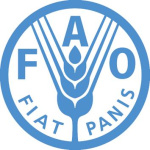- Industria: Agriculture
- Number of terms: 87409
- Number of blossaries: 0
- Company Profile:
Established in October 1945 with the objective of eliminating hunger and improving nutrition and standards of living by increasing agricultural productivity, FAO coordinates the efforts of governments and technical agencies in programs for developing agriculture, forestry, fisheries, and land and ...
Introduction of two mutant chromosomes into the same cell to determine whether the mutants are alleles of the same gene. If the mutations are non-allelic, the genotype will be <i>m<sub>1</sub> +</i>/<i>+ M<sub>2</sub></i> , and the phenotype will be wild-type (normal), because each chromosome "covers" for the other. In contrast, if they are allelic, the mutant phenotype will result.
Industry:Biotechnology
Introduction of two mutant chromosomes into the same cell to determine whether the mutants are alleles of the same gene. If the mutations are non-allelic, the genotype will be <i>m<sub>1</sub> +</i>/<i>+ M<sub>2</sub></i> , and the phenotype will be wild-type (normal), because each chromosome "covers" for the other. In contrast, if they are allelic, the mutant phenotype will result.
Industry:Biotechnology
Isolation of any bacterium, animal or plant from the outside world.
Industry:Biotechnology
Jargon for the bacterial strain of <i>Pseudomonas</i> developed by Chakrabarty, who combined hydrocarbon-degrading genes carried on different plasmids into one organism. Although this genetically engineered micro-organism is neither "super" nor a "bug", it represents a landmark example because it showed how genetically modified microbial strains could be used in a novel way and because it was the basis for the precedent-setting legal decision that declared that genetically engineered organisms were patentable.
Industry:Biotechnology
Joining (ligation) of the nucleotides that are at the ends of two blunt-ended DNA duplex molecules.
Industry:Biotechnology
Large diplotene chromosomes present in oocyte nuclei, and particularly conspicuous in amphibians. These chromosomes have extended regions called loops, which are active sites of transcription.
Industry:Biotechnology
Large, white blood cells that ingest foreign substances and display on their surfaces antigens produced from the foreign substances, to be recognized by other cells of the immune system.
Industry:Biotechnology
Lateral bud occurring at the base of a terminal bud or at the side of an axillary bud.
Industry:Biotechnology
